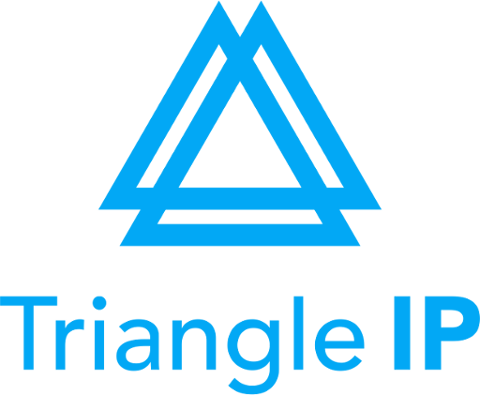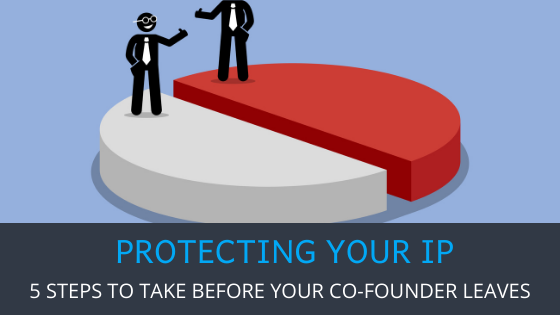“Remember co-founders are also employees who are privy to confidential information. A leaving co-founder may pose a significant threat to your IP. We bring to you five ways to protect your IP when your co-founder leaves.”
In this light, the role of innovation management software in protecting intellectual property becomes increasingly critical.
The team that starts a company is often not the one that stays on till the end of it.
Co-founders leave.
A co-founder who is leaving the company may pose a significant risk to the company. He/She may claim the company’s intellectual property rights as his/her own.
A leaving co-founder can start their own rival entity and may end up using the company’s intellectual property.
Typically, when co-founders start a company, they brainstorm, develop an IP, and then start with the business.
This makes the co-founders privy to all kinds of proprietary information. They have seen the growth of the IP from a nascent stage. And they may think that they have a right to use it, independent of their association with the company, as well.
So, what to do when a co-founder leaves? How to protect the company’s IP against a leaving co-founder?
We highlight below five ways by which you can protect your company’s IP. And contractually bind the co-founder to not use or treat the company’s IP as his own:
Assign IP to the company rather than co-founders/Invention Agreement
Intellectual Property enhances the valuation of companies. Hence, its protection becomes important. IP Rights need to be assigned to the company rather than the founders. This underscores the importance of comprehensive invention disclosures in safeguarding corporate IP assets. In the event, the founders decide to walk away from the company, it is important that the IP rights still remain with the company.
How can IP rights be assigned to the company?
This is where a proprietary inventions agreement comes into the picture.
Such an agreement mandates that all the intellectual property developed, conceived, formulated, and generated by a company would be the sole property of the company.
While drafting this agreement, care should be taken that the intellectual property rights of the co-founders are assigned to the company and that they do not remain the property of an individual. It is not uncommon for companies to obtain trademarks, patents, and domain names in the name of one or more of the co-founders initially.
Later on, these should be transferred in the name of the company. Any patents which are filed should be filed in the name of the company and not the co-founders.
Employment Agreement
A co-founder is not only associated with a company in the capacity of a co-founder but also as an employee. This dual role necessitates the expertise of a skilled patent attorney to ensure IP rights are properly vested in the company. He/she may develop intellectual property during their employment with the company.
Rights in such intellectual property should also be vested in the company.
The co-founder’s employment agreement which would be separate from the inventions agreement should contain such a clause.
Non-Disclosure Agreement
A Non-Disclosure Agreement should be mandatorily signed with the co-founder. Such an agreement would prevent the co-founder from disclosing the trade secrets of the company.
For example, if you have a restaurant business and there is a unique recipe that has the capability of attracting more customers to your restaurant; the recipe is your restaurant’s trade secret.
If your co-founder leaves and opens a competing business and uses this recipe, your restaurant would lose its edge. A non-disclosure agreement would contractually prohibit him from engaging in such an act.
Confidentiality Clause
Business ideas form the very base of successful functioning and continuance. Hence, it is prudent to bind all current and even former partners by the clause of confidentiality.
Confidentiality should protect the business ideas, trade secrets, any operations/procedures which have been adopted to give finality to these ideas, and finally the end-product itself.
A confidentiality clause can be built in the employment agreement of each co-founder, in the Founders’ Agreement, and in the NDA which the co-founder signs.
Remember to make the confidentiality clause applicable even post the termination of the aforesaid agreements.
Typically, a confidential clause should survive 6-12 months after the agreements have ended.
Non-Compete Clause
A non-compete clause prohibits the co-founders to engage in competing business for a reasonable period of time after they leave the company.
It is essential to have a non-compete clause in the Founders’ Agreement and the employment agreement of the co-founder.
One hurdle that one may face with regard to non-compete clauses is its enforceability.
The enforceability of non-compete clauses varies across states.
In California, such clauses are void and unenforceable.
In other states such as North Dakota and Oklahoma, the use of non-compete provisions outside the sale of a business is limited. Other states such as Illinois prohibit the use of non-compete with regards to low wage workers.
Hence, having a non-compete clause can be one of the ways in which you can prevent your co-founder from stealing your confidential information and use it for the benefit of a rival/competing entity.
However, it may not be fool-proof and hence should be coupled with other protections such as assigning of IP to the company, NDA, confidentiality obligations, etc.
Our co-founder recently talked about this in a detailed video. You can watch the video below:
On a side note: Would you want to know how your patent application is progressing at the USPTO compared to other applications in the same domain?
The TIP tool offers statistics of the law firm and the examiner handling your case. Once the application is filed at the USPTO, and an examiner is allotted to your case, the tool indicates the relative performance of the law firm handling your case. The statistics revolve around the number of arguments, grant rate, and grant time. The tool also indicates the case health, for instance, it can tell you if a case needs your attention. There is a whole bunch of insights that you can gather from the TIP tool for strategic patent prosecution.
Request insights for any of your cases at the patent office using the form below.
Conclusion
To conclude, while it is understandable that a co-founder leaving a start-up that they helped build may be a devastating blow for the management, it does not necessarily have to be a fatal one.
By doing small exercises to protect the larger interests of the company over the individual interests of the founders, the company can have a strong foundation on which it can be built.
If organizations take steps like including IP ownership by the company, along with NDA and non-compete clauses as part of a founders’ agreement, then any future fallout resulting in the founders splitting ways, will not tear the company apart.
These steps will provide stability to the company and protect its IP.
If you like this article, join us where we share patent information that matters to you. Don’t worry, we only send emails that we feel are highly relevant for you?
Note: The preceding is general business advice and not to be construed as legal advice. IP laws vary by country and retaining licensed legal counsel is advised to confirm this information. Any expressed or implied opinions are of the author and do not necessarily reflect the views of Triangle IP or any other entity who might be associated with the presenter. We hope this content is helpful to you, but should not be relied upon without confirming the advice and accuracy with local legal counsel. Any comments or inquiries are not confidential so please discuss your issues directly with counsel.





